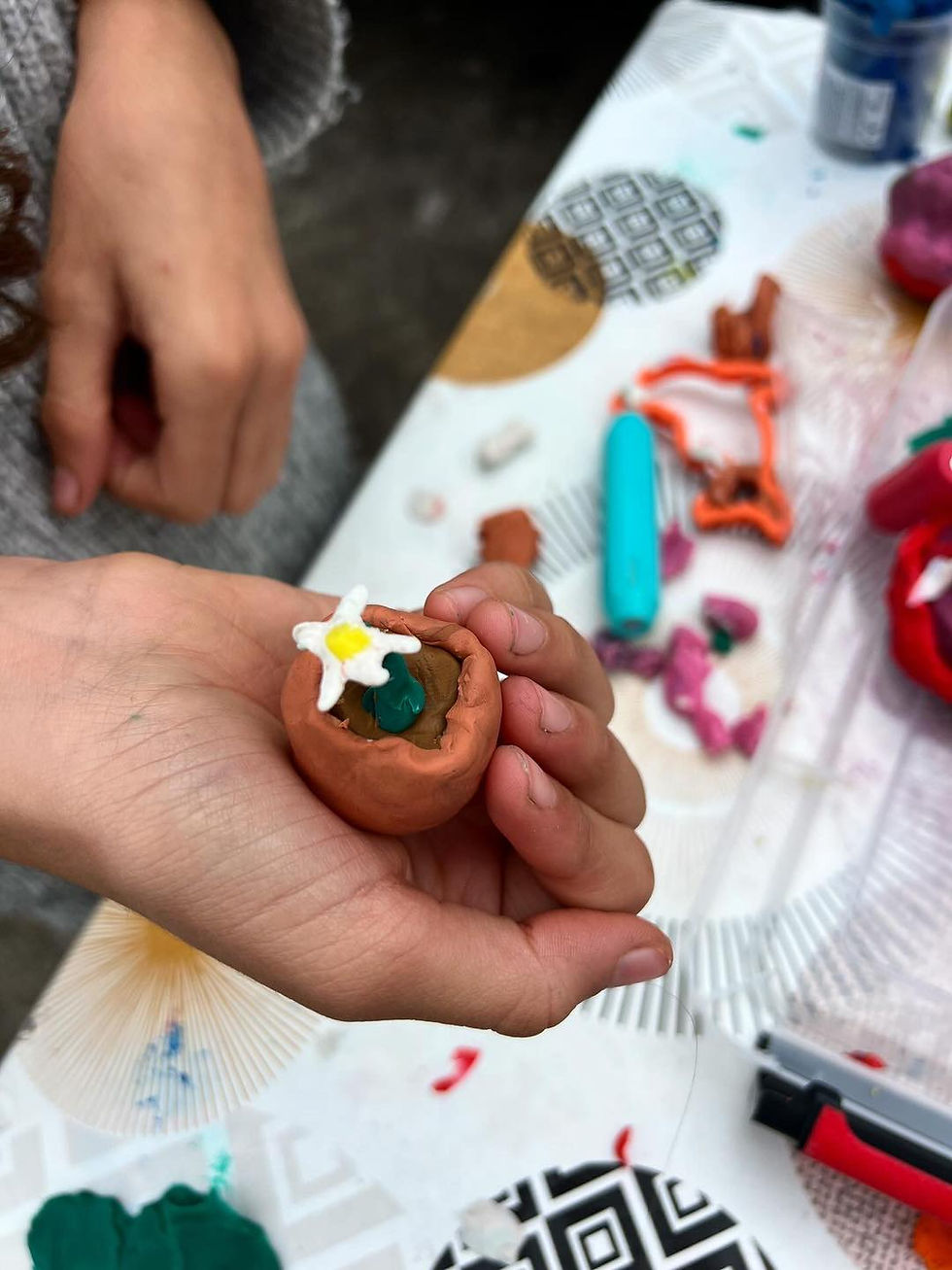"Not all of Calais doesn't have a heart." (Anonymous refugee)
- Art Refuge

- Feb 26, 2016
- 3 min read

It has been quite a week for everyone in the camp with the devastating news that the entire southern side of the camp except for social spaces will be evicted. This had been a shadow hanging over the camp for some time but the confirmation still shocked and saddened many with its dire consequences.
On Thursday we worked together in the new Medecins du Monde psychosocial tent space, soon filled with a number of boys and men, aged 14-40. It was the first time we had all worked together in this space and was marked by a memorable, spontaneous game of football whilst the sun was out. A teenage boy – and familiar face – came to visit, having not been with the team since January. It was good to hear from him and from another young man that they have separately been welcomed by local French families into their homes. Another local man was keen to share: “Not all of Calais doesn’t have a heart” – at a time when the camp is witnessing local authorities and the French Government make their next move by quickly bringing bulldozers and removal teams in, asking people to move on.
On Friday, Fawzia and Jess ran the open art therapy group in the MSF clinic. This was our last time in this space as MSF now hands over the medical service to the state. And with all going on outside the space – inside the camp- a grieving process seemed to be strongly present in different forms within the group.
A lot of people seemed lost and confused. We worked again with two Iranian Kurdish goldsmiths who usually make and create some poetic, gentle and intricate stencil work. In this session, they wanted to connect to the darker aspects of life. They both live in an area in the camp which is said to be destroyed soon, leaving them with great sadness. One of them made a flower filled with different coloured hearts. He mentioned that we are all different and this flower is beautiful because of that. Even though he deeply believes in the goodness of each person’s unique heart, he painted the middle of the flower with black: “Sometimes people forget and their heart in the midst of harsh feelings becomes black.” He also showed us photographs of his wife and two sons whom he misses dearly. This resonated with someone else in the room who said “love makes you bleed” because, for example, he loves and misses his mother who he left behind in Syria so much that it hurts. This young man created a snake out of plasticine. He told us that the snake is a medicine: “if you don’t harm it, it won’t harm you”. He doesn’t know why he came up with wanting to create a snake but advised: “people in India know”.
We were reminded of those outside the immediate space; what takes place near to and far away from us each day, and his mindfulness of others was hugely respected amongst the group amidst so much turmoil in his own daily life. One snake he said is for memory: “this represents those who will never forget what happened and is still happening to them now, and the other snake stands for forgetfulness, for us and the people who will forget what they have endured.” The other Kurdish man told us he is really tired and the only thing he desires in his life is a female partner. He then created handcuffs out of plasticine and a gun. He re-enacted a scene with the police through role play. He put Fawzia in handcuffs, with a plasticine gun to her head. He didn’t let Fawzia move or break free until Jess and other people sitting on the table had witnessed this. Then he asked Fawzia to break free and cut through the chain. This became an act of solidarity joined in by all those around the table.
Three women from Sudan also attended the art therapy space. One woman is keen to come back next week to stitch her journey from Sudan to Calais. We plan to move to a new space next Friday with members of the MSF team.



Comments